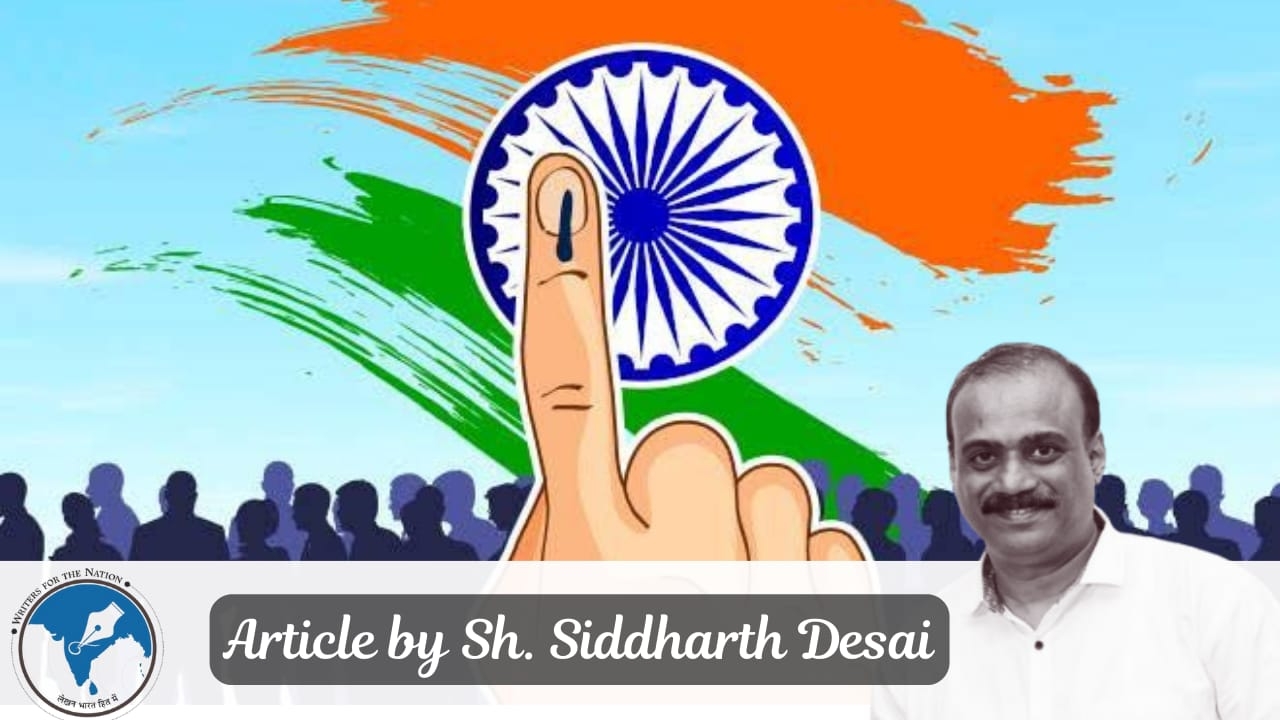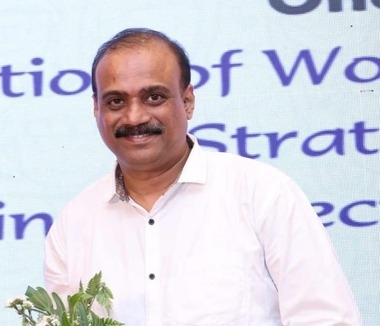Lok Sabha Elections 2024 - Strategies to Enhance Participation in Democratic Elections
The Election Commission, political parties, and the people have discussed this issue, and they have different solutions. However, this time it can be observed that out of the youth who are eligible to vote at the age of 18, only about 40% have registered, whereas previously this percentage was around 80% to 90%.

In 2009, there were over 716 million registered voters in the 15th Lok Sabha elections, with a voter turnout of approximately 58%. In the 2014 elections for the 16th Lok Sabha, around 815 million voters cast their votes, resulting in a total voter turnout of 67%.
During the elections for the 17th Lok Sabha from 2019 to 2024, around 900 million voters exercised their voting rights, with a turnout of approximately 70%. In the upcoming elections for the 18th Lok Sabha in 2024, there are approximately 970 million registered voters, which is clearly higher compared to 2019.
The Election Commission has taken measures to address the issue of heat during this election. They have provided facilities such as ORS powder, electrolyte powder, and other amenities. Arrangements for shelter at polling stations, water supply, voting at home for elderly voters, and the provision of medical teams and ambulances have been made.
Voter education programs have also been conducted to support and raise awareness among voters, along with effective advertising, so that voters can actively participate in this festival of democracy.
The Election Commission, political parties, and the people have discussed this issue and studied countries where voting is mandatory. In those countries, individuals who do not vote are penalized.
However, it has been found that compulsory voting does not necessarily result in significantly higher voter turnout. In some places, the voter turnout is only around 80%, while in several states in India, such as West Bengal, Tripura, etc., many places witness voting percentages of over 90%.
Therefore, there is currently no time for compulsory voting in such an environment. Instead of punishing people for not voting, opinions of the people are being sought while considering these issues.
The Election Commission has created an option called the Remote Voting Machine. This machine is designed for migrant workers and people who are away for exams or other urgent tasks. It has been launched as a prototype, but currently, political parties have reservations about it.
They have stated that it should not be implemented immediately, and its application will be considered later when there is consensus on it. Once it is implemented, you will be able to register wherever you are and cast your vote there, and it will be counted.
This facility will be quite important because there are approximately 5 to 7 crore people in Punjab and Haryana who come to work for their poor farmers. They will also be able to exercise their voting rights without having to bear the cost of going to the polling station.
Similarly, it is not possible for businessmen who send money through NRI (Non-Resident Indian) to vote because they have to spend a lot of money to go there or they have to come there to vote. Therefore, this kind of facility would be a good solution for all sections of society, and I believe it should be gradually developed and implemented with equality among all political parties.
An Electoral Campaign Society has been established in colleges through which they create awareness among all students that it is not a day off for students, it is not a day to celebrate a picnic, it is a day to cast your vote. Along with instilling patriotism, it should also be associated with duty. How can we inspire and motivate youths for this?
A cricketer practices from morning till evening, he doesn't feel tired, he doesn't feel bothered by the heat. A student who studies reads from morning till evening, he doesn't feel tired of studying. Because he feels a connection with that work, similarly, in the work of casting a vote, it is not my personal work, but a work for the country, and the country is above me, so I have to vote. Such various programs are carried out at the college level, and they should also be present at the level of pre-college education. And undoubtedly, the voter turnout will also increase.
We should keep in mind that we ourselves should vote and also encourage others. I believe that we should start by going to vote ourselves. In my opinion, those who did not vote should not have the right to make any kind of comment or biased remarks and then later make 50 different comments. It is a flaw in our thinking to say, "What difference does it make if I vote?" Every vote counts, and it is our responsibility as citizens to participate in the democratic process. By exercising our right to vote, we can contribute to the selection of our leaders and have a say in the direction of our country. Additionally, encouraging others to vote and spreading awareness about the importance of voting can help increase voter turnout.
There are several steps we can take to encourage higher voter turnout :
1. Voter Education: Promote voter education programs that provide information about the electoral process, voting rights, and the impact of voting. This can help demystify the process and empower individuals to make informed decisions.
2. Awareness Campaigns: Launch awareness campaigns through various media channels, includinMu social media, television, radio, and print, to highlight the significance of voting and the impact it can have on shaping the future of the country.
3. Engage Youth: Create initiatives specifically targeted at young voters to engage them in the electoral process. This can include organizing debates, workshops, and interactive sessions to discuss political issues and encourage their participation.
4. Simplify Registration Process: Streamline the voter registration process includint more accessible and user-friendly. This can include online registration options, mobile registration centres, and extended registration deadlines.
5. Improve Infrastructure: Ensure that there are adequate polling stations and facilities available to accommodate voters, particularly in remote areas. This can include provisions for transportation, shelter, and other amenities to make voting more convenient.
6. Civic Education in Schools: Incorporate civic education and the importance of voting into school curricula. By teaching students about democracy, citizenship, and the electoral process from a young age, we can foster a sense of responsibility and encourage future participation.
7. Public Figure’s Endorsement: Encourage public figures, celebrities, and influencers to endorse voting and actively participate in the electoral process. Their influence can help reach a wider audience and inspire greater voter turnout.
8. Address Barriers: Identify and address barriers that prevent certain groups from voting, such as language barriers, physical disabilities, or logistical challenges. Implement measures to ensure that everyone has equal access to the voting process.
9. Election Day as a National Holiday: Consider declaring Election Day as a national holiday to provide greater opportunity for people to vote without the constraints of work or other commitments.
10. Lead by Example: As individuals, we can lead by example and actively participate in the electoral process. By showing our enthusiasm and commitment to voting, we can inspire others to do the same.
By implementing these measures and fostering a culture of active citizenship, we can work towards increasing voter turnout and strengthening our democracy. Remember, every vote matters, and each of us has the power to make a difference through our participation.
Article by

Siddharth Desai
Columnist - Writers For The Nation
Mumbai, Maharashtra


